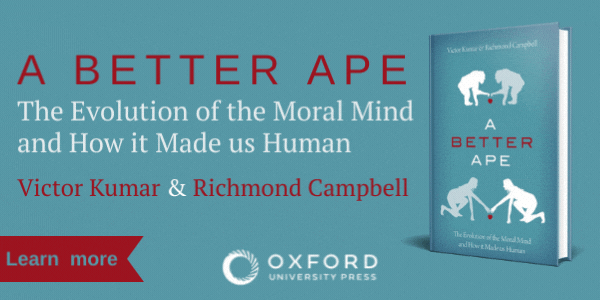Contemporary Philosophy That May Help You In A Difficult Time
At Shepherd, a book recommendation site, philosopher Michael Cholbi (Edinburgh) discusses his own book, Grief: A Philosophical Guide, and a few other works by philosophers he thinks can provide readers with an “emotional compass” to help “navigate the perennial challenges that being human presents us.”

[Edward Hopper, “Automat”]
In light of… everything, this seems like a theme worth expanding on, so I invite readers to share books and articles by philosophers they’ve read that they think offer something that can be of use for people experiencing emotionally challenging times. I’d ask of readers that the works they recommend:
- be not just about some challenging emotion or type of difficult experience, but helpful in some way or another for someone grappling with that emotion or experience, and
- be written in the past 50 years, so as to avoid trite suggestions and, with luck, to give exposure to some underappreciated writing.
Thank you.



If you are religious, Eleonore Stump’s _Wandering in Darkness_ is great. See especially her retelling of the book of Job.
Susan Brison’s Aftermath could be beneficial for people dealing with trauma or PTSD (who are in a position to be able to productively engage with material, which of course won’t be everyone.) I taught selections of the book this semester in my feminist philosophy class (about how the personal is philosophical) and bioethics class (about the relational self/relational autonomy) and had some students respond that it helped them understand and cope with trauma in their own lives or that of family members
Luc Bovens’ Coping: A Philosophical Guide (2021) fits this topic perfectly. Available for free download via Open Book. Highly recommended.
Amia Srinivasan’s collection The Right to Sex is really fertile for this purpose, I think, because it explores conflicts we face in society today, in a sensitive way, while putting them in dialogue with older feminist writing. I’d especially recommend “On Not Sleeping with Your Students” in this regard–although it can certainly be triggering for those who’ve experienced sexual harassment/assault, especially from faculty.
I also highly recommend the work of Viktor Frankl. Man’s Search for Meaning is well known, but his only recently translated lectures from around the same time, published as Yes to Life in Spite of Everything, are also quite powerful at engaging with suffering and death and how we respond (CW: discussion of suicide).
Not to hide my light under a bushel, Chapter 7 of my _Philosophical Mysticism in Plato, Hegel, and the Present_ (Bloomsbury Academic, 2020) is entitled “Plato on Reason, Love, and Inspiration” and explores the relationship between reason and love, including “romantic” love, in a way that could well be helpful to someone who is seeking to understand the “challenging” and (for many of us, indeed) “difficult” and disorienting experience of romantic love. Plato in the “Symposium” and elsewhere was clearly seeking to understand, among other things, his own experience of romantic love, and thus to deal more intelligently with it, and what he wrote has in fact been very helpful to me in understanding and deepening my own experience of romantic love. And what he wrote is certainly anything but “trite.”
Jason Stanley’s How Fascism Works has changed me forever, or at least for the next 200 years.
These two essays by Agnes Callard:
“The Philosophy of Anger” (2020)
https://bostonreview.net/forum/agnes-callard-philosophy-anger/?fbclid=IwAR36JtawZRue3UV184MWvEZh7poYMNi2hPCPkXOoDM9dbvbG6StW39vDl5E
“The Other Woman” (2021)
https://thepointmag.com/examined-life/the-other-woman/
Kieran Setiya’s book Midlife: A Philosophical Guide obviously focuses on one particular sort difficult time, but has lots to say that is helpful for many of life’s difficulties.
Philosophy does not have to be “useful” to be “valuable”. Critical thinking, understanding of knowledge, etc have value in their own right. As for “grief” we think way too much about it in our western culture, primarily because we have forgotten (killed) God.
Yep it’s true most Asian languages don’t even have a word for “grief.” Okay obviously I’m being sarcastic. What a deeply silly thing to say. It rests on a sentimentalized and shallow if not even racist conception of “non-western” thought. As if people outside the West didn’t love their parents, friends, and children? I’m no expert but from my interested layman’s knowledge it seems that a lot of Daoist and Buddhist thought is focused on how to deal with grief. And of course a lot of Augustine’s “Confessions” burrows into the experience of grief and they hadn’t “killed” God then whatever that stupid quote from Nietzsche is actually supposed to mean.
Wolterstorff’s “Lament for a Son” is a classic. I also think Susan Neiman’s “Evil in Modern Thought” is very good, though a little less personal. A friend of mine who’s had more than ample ground to feel wronged in recent years said that Murphy and Hampton’s “Forgiveness and Mercy” has been really helpful for them, though I haven’t had a chance to get around to it yet.
I will recommend Siddhartha by Herman Hesse for the story of life-experiences chosen and gone through by a hermit for his spiritual enlightenment.
Another one Jonathan Livingstone – The Seagull by Richard Back for the meaning of life in the creative joy of flying.
Chatter, The Voice in Our Head, Why It Matters and How to Harness It by Ethan Cross.